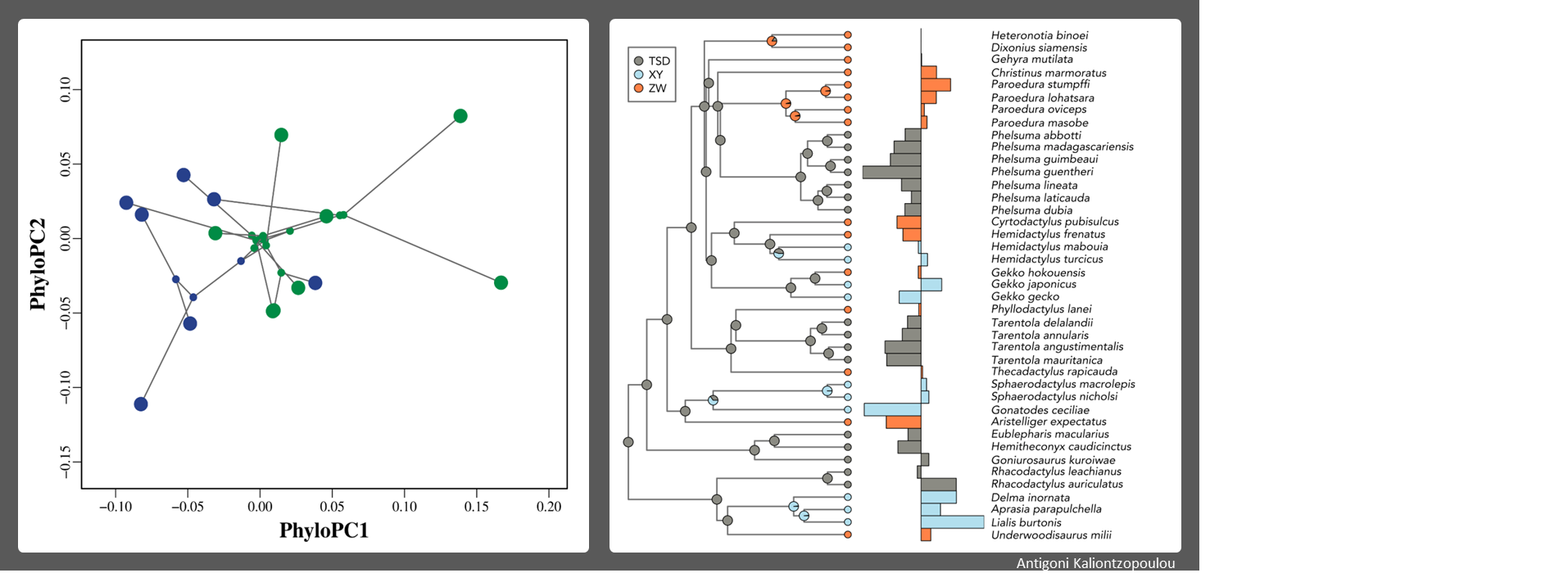ADVANCED COURSE: PHYLOGENETIC COMPARATIVE METHODS FOR STUDYING DIVERSIFICATION AND PHENOTYPIC EVOLUTION


Phylogenetic comparative methods are commonly used nowadays to investigate how species diversification occurs and test hypotheses about the mechanisms that drive phenotypic evolution, e.g. to model speciation and extinction, to understand why some groups are more diverse than others, to test whether phenotypic traits have evolved under neutral, directional or diversifying selection, to investigate how evolutionary rates are modified across the evolutionary history of a group etc. In all these cases, a phylogenetic hypothesis for the group of interest is combined to phenotypic and ecological data at the species level to understand the tempo and mode of evolutionary change.
The objective of this course is to provide an overview of these methods and of the tools available for their implementation in the R statistical language. During theoretical sessions, we will review the main concepts and statistical tools necessary for testing hypotheses about species diversification and phenotypic evolution. These will then be implemented in practical lab sessions through worked examples to provide the participants with hands-on experience on data management and the implementation of these methods to real biological data.
A good knowledge of basic operations in R (file import, handling objects, using functions, getting help) is required and assumed to be able to adequately follow this course. BIODIV students are encouraged to take the Introduction to R course first.
PROGRAMME
DAY 1: Introduction
9:30 – 10:30: Why do we need PCMs? A short history of the field
11:00 – 12:30: LAB
14:00 – 15:30: Testing for phylogenetic signal
15:30 – 17:30: LAB
DAY 2: Testing hypotheses on phenotypic evolution
9:30 – 11:00: Ancestral character reconstruction
11:30 – 13:00: LAB
14:30 – 16:00: Phylogenetic independent contrasts and phylogenetic GLS
16:00 – 17:30: LAB
DAY 3: Tempo and mode of evolutionary change
9:30 – 11:00: Evolutionary rates: estimation and tests
11:30 – 13:00: LAB
14:30 – 16:00: Models of phenotypic evolution
16:00 – 17:30: LAB
COURSE INSTRUCTORS
Antigoni Kaliontzopoulou - CIBIO-InBIO | PHENEVOL
Jesús Muñoz - CIBIO-InBIO | PLANTBIO
INTENDED AUDIENCE
The course will be open to a maximum number of 20 participants.
Priority will be given to:
• 1st year and other PhD students attending the BIODIV Doctoral Program;
• PhD students attending other courses;
• Other post-graduate students and researchers.
REGISTRATION
To apply, please fill the form available HERE
Registration deadline: October 18, 2018
Participation is free of charge for BIODIV students | 65 € (students) / 125 € (other participants). CIBIO-InBIO members will have an additional discount of 20%.
If you do not agree to fill in the form, please send the requested information to post.graduation@cibio.up.pt, with the subject: REGISTRATION - ADVANCED COURSE: Phylogenetic Comparative Methods for studying diversification and phenotypic evolution. All applicants will be notified about whether they are accepted a month prior to the course starting date.
Please note that new rules apply for all BIODIV students.
